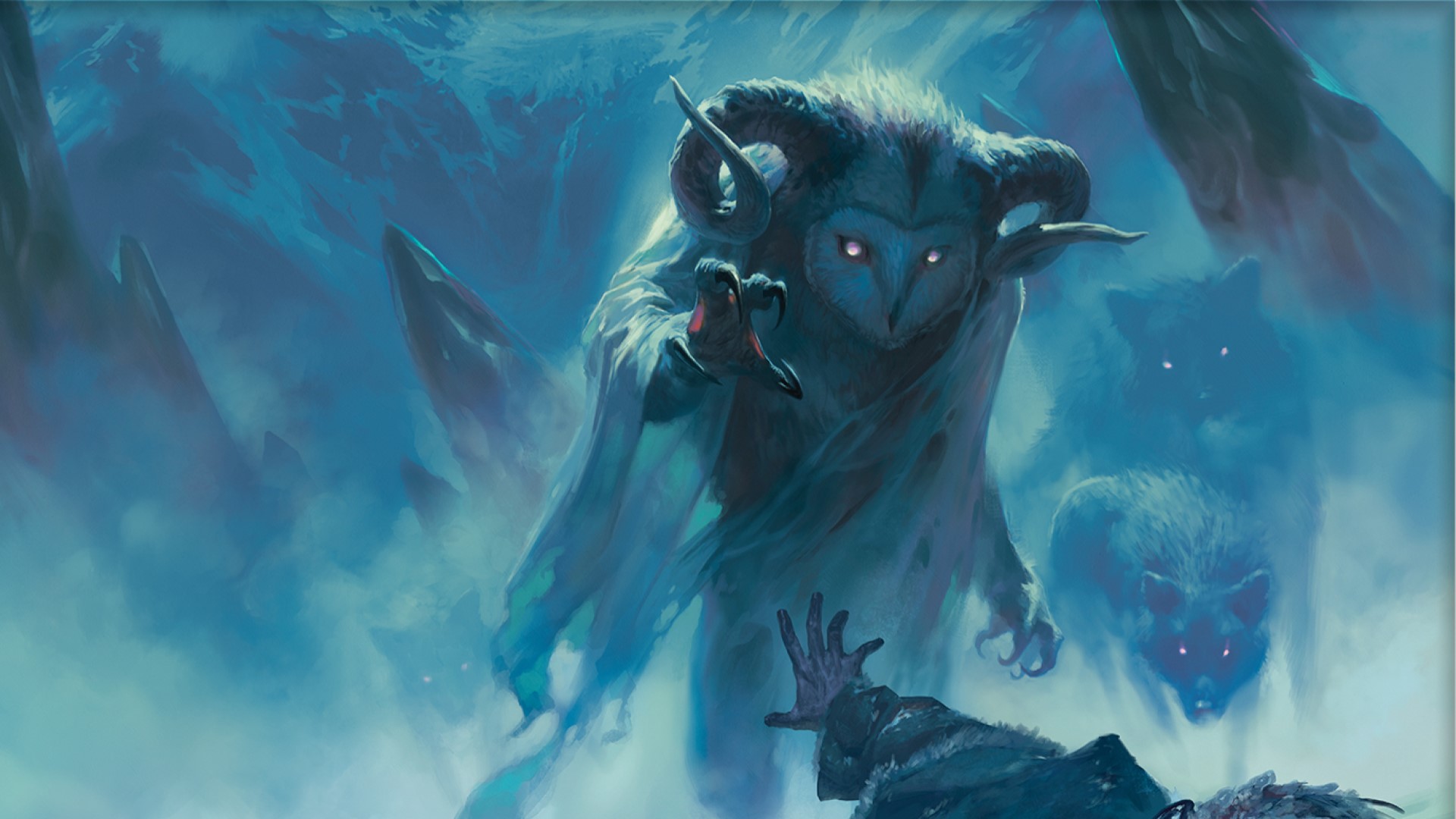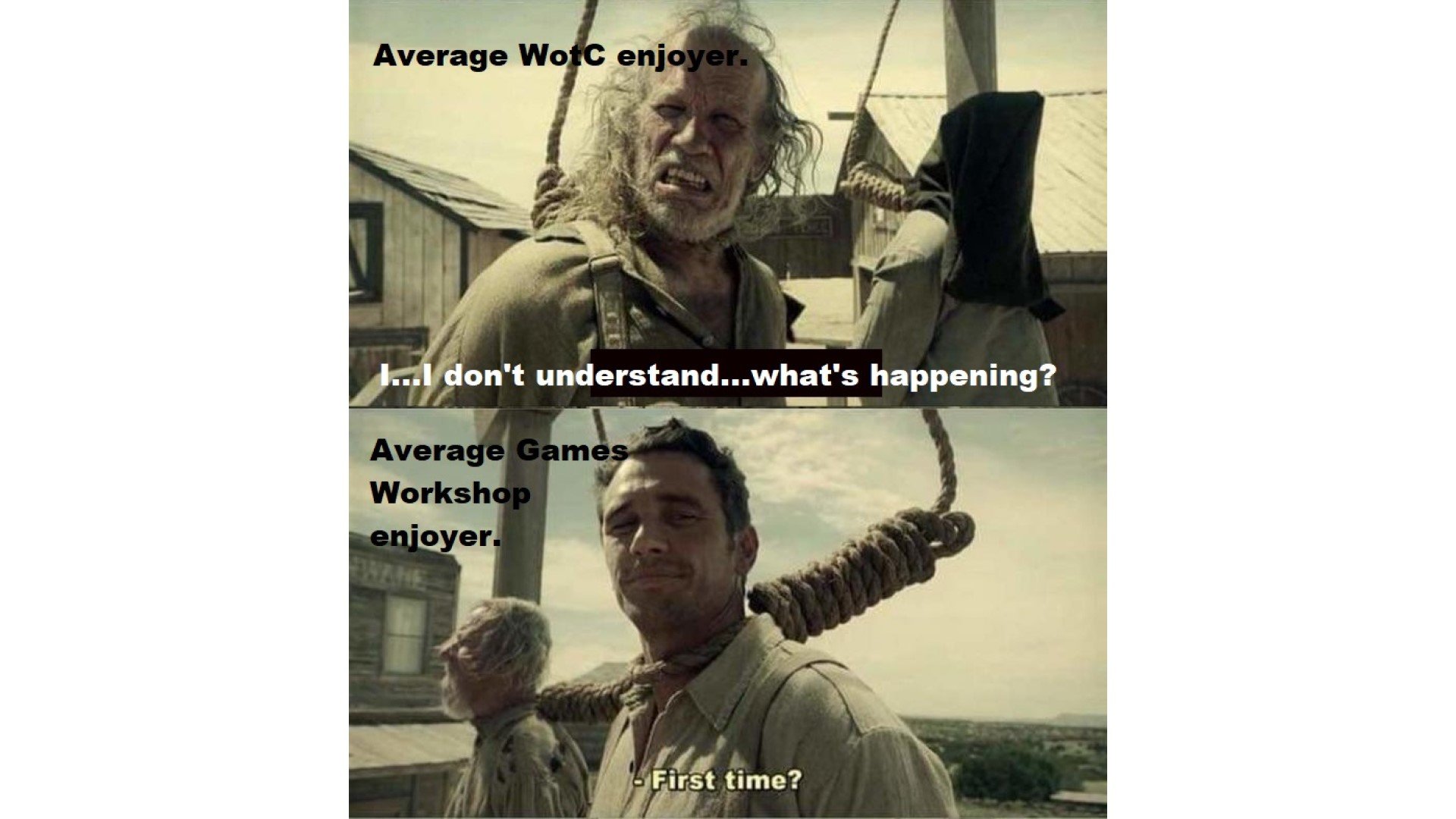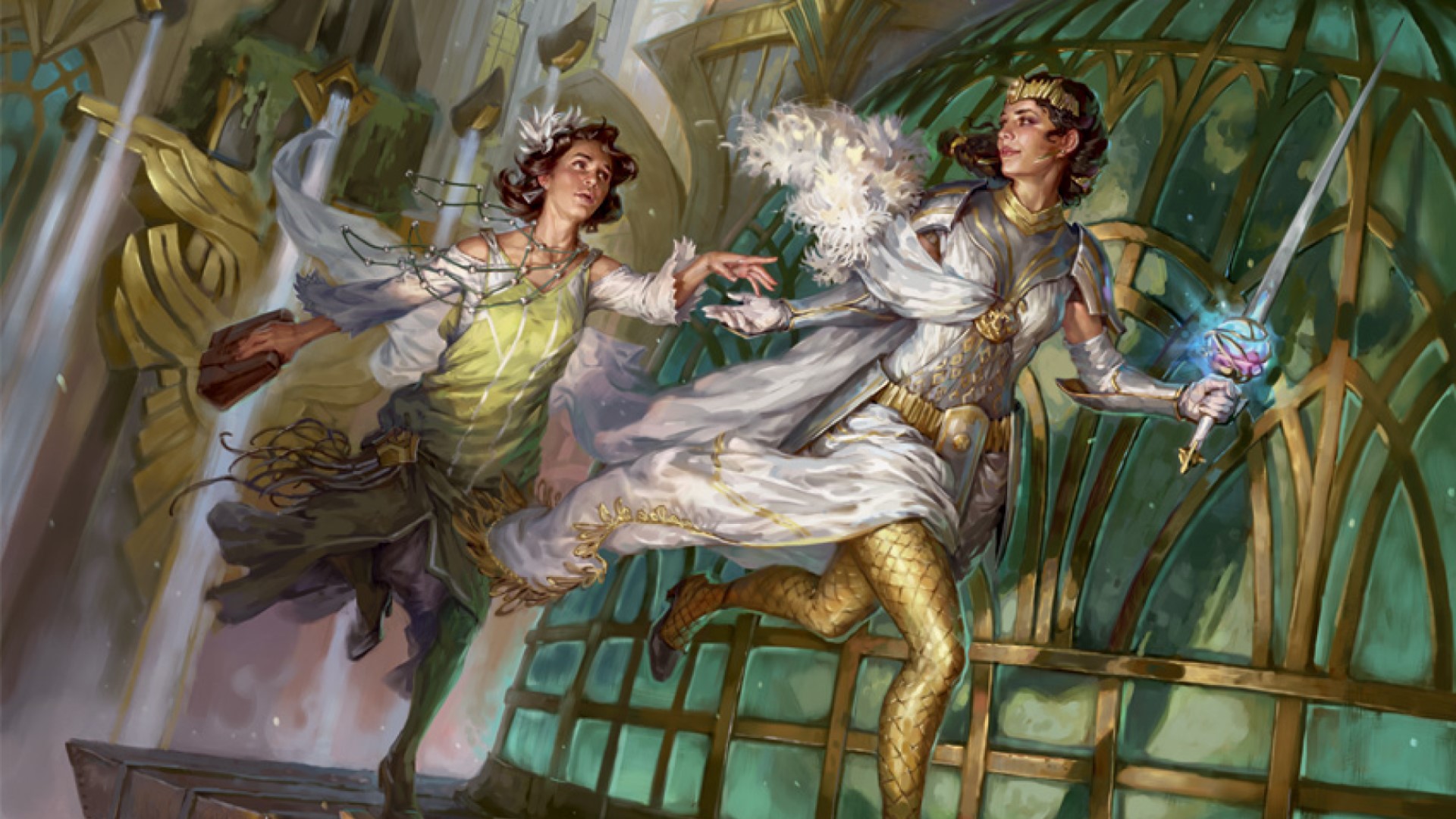It’s fair to say that the current OGL controversy has been the biggest PR screw up for Dungeons and Dragons in years. Sure, there’s always been the odd scrape and scandal, but for the most part D&D fans had a pretty positive, or at least neutral opinion of Wizards of the Coast during the 5e era, one that has been thoroughly tarnished by the company’s actions and (lack of) communication over the DnD OGL update.
With huge swathes of the tabletop community enraged, and third party publishers shearing away from the OGL and D&D as a whole, it’s certainly an interesting time to be following the hobby. What will happen next is anyone’s guess. But if one thing is clear, it’s that Wizards’ reputational damage is not going to be fixed overnight. Putting content into Creative Commons is obviously a huge shift, and the recent D&DBeyond statement landed pretty well – as far as corporate apologies go – but it doesn’t make up for what came before.
I’m not saying that as a personal judgement. I’m saying it because you only have to look at responses on social media to see that, while many acknowledge Wizards’ latest stance is more promising than the one before, a large number of tabletop fans are dismissing it as empty words. The OGL draft is being scrutinised to hell and back. The most ambitious are calling for Wizards to keep the OGL exactly as it is, or even (at the most drastic end) to hand over its stewardship of the D&D brand to someone else. There’s still a revolutionary buzz in the air.
D&D fans don’t trust Wizards right now. In fact, right now, it seems they want to think the worst of the company. That’s why so many were willing to believe the newest set of leaks – publicly denounced as “misinformation” by Wizards and prominent DnD writers including Ajit George – about a $30 Netflix-style subscription plan, or that written survey results get thrown in the bin. It’s perfectly possible a new D&D subscription (though perhaps not a $30 one) could have passed without much of a hoo-ha before, if it offered enough content. Now, I think, it would be widely condemned – whatever the price point.
Even if the hubbub dies down; even if the final form of the OGL is a carbon copy of the existing Open Gaming Licence; even if everything is tied up with a neat little bow, the effects of the OGL scandal will still be long lasting, its ghostly imprint felt on every future D&D discussion for an age to come. Every business decision Wizards makes on D&D is now going to be viewed in the least charitable light. The company has burnt its fanbase’s goodwill; it has lost the benefit of the doubt. While it may make the games they like, for many ‘fans’, Wizards is now the bad guy.
In other words, the D&D fanbase is fast starting to look like sections of the Magic: The Gathering or Warhammer 40k communities, adopting the same world-weary cynicism and conspiracy-laden attitudes you often see from fans of these, equally geeky, games.
Memes from Warhammer fans about the OGL row have flown thick and fast, all with the ever so slightly smug implication that this is just what’s to be expected. “First time?”, the Warhammer kids snicker, as their DnD-playing compatriots rage against the machine. The actor behind Games Workshop’s YouTube spoof mascot ‘James Workshop’ even joked on Twitter that Wizards had “pooped their pants” over the OGL, but of course GW had never done anything wrong.
MTG is a particularly interesting case, since it’s the other big brand owned by Wizards of the Coast. Just a few months ago, the company experienced a pretty severe backlash from Magic fans (who were pissed off about the $999 30th anniversary edition) and crosstalk with the newly disgruntled D&Ders is certainly occurring – the comments section to the recent Phyrexia: All Will Be One preview stream was full of OGL hashtags. I’ve certainly seen a shift in Magic since last October. Fans appear more cynical and less trusting about anything Wizards says. People are still posting pictures of the card Greed on all the MTG account’s tweets.
The thing is, though, while Magic and Warhammer fans will talk trash about Wizards and Games Workshop all day, this absolutely doesn’t mean they stop opening their wallets. You don’t have to look very far to see headlines about Wizards of the Coast and Games Workshop’s bumper profits. It seems like, so long as the product remains good, fans will continue to pour cash into their hobby, even as they badmouth its creators. You see this in the video game world too – there’s not one major AAA publisher with an unspoiled reputation, but it doesn’t really matter to them, so long as people keep buying their games.
So in looking to the future, I wonder what the impact of all this OGL talk will actually be. It will no doubt change the way fans talk about D&D, but will it change the way they act? If further iterations of the OGL become more palatable, and if One D&D’s ruleset is as good or better than D&D 5e, how many will put in extra effort to switch from what they know?
Comparing this to fan uprisings in the Warhammer and Magic: The Gathering communities might lead us to assume the OGL 1.1 debacle will fizzle out quickly. The pattern suggests the folks making bold ‘not another red cent’ style proclamations online today will be back to their DnD Beyond subscriptions tomorrow (even if they continue to rail against Wizards).
But this is only part of the picture; remember that Warhammer 40k or MTG have strong incentives for fans to keep up and spend on the newest, most powerful plastic soldiers or cards. If you’re a DnD fan who wants to ‘vote with your wallet’ against Wizards of the Coast, you could theoretically keep playing with the materials you already have forever, without being left behind a meta, or feeling detached from the best version of the experience. Not to mention there are many, many alternatives out there in the tabletop roleplaying world one could switch to, and you can happily get by creating your own content.
These moves are exactly what Wizards’ more vociferous critics are urging fans to do. Will they, or won’t they? We can look to other games and past controversies for clues, but only time will tell just how much of a lasting commercial impact the current ruckus will have on the game’s future.
Source: Wargamer






